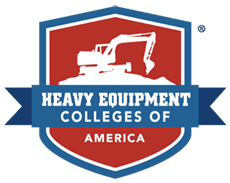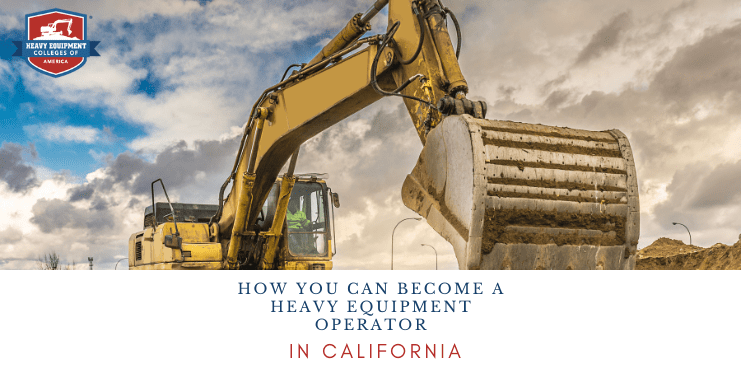Heavy equipment operation is an in-demand field full of opportunities for qualified personnel. Whether you want to be a backhoe operator, excavator operator, or crane operator—your first step is getting the right training and certification. Read on to explore your path to becoming a heavy equipment operator in California.
Table of Contents
What Tasks Do Heavy Equipment Operators Perform?
On just about every job site, you’ll see monstrous machines lifting, digging, moving materials, knocking down structures, and more. It takes a qualified operator to handle heavy machinery safely. But the specific task you may be asked to perform as a heavy equipment operator varies. Not every piece of equipment can do the same thing.
If you got trained and certified as a Tower crane operator, you’d expect to be tasked with moving and lifting heavy objects to where they need to be. Similarly, a bulldozer operator would be tasked with pushing materials like soil, rubble, and more.
5 Steps To Become a Heavy Equipment Operator in California
1. Obtain a High School Diploma or GED
Before you can operate heavy equipment and machinery, most employers require you to have a high school education or GED. It demonstrates that you’re capable of performing tasks and following instructions.
2. Complete Heavy Equipment Training
On top of your basic education, many employers like to see that you have the proper training to operate heavy equipment. Some training programs, like the ones at Heavy Equipment Collegs of America (HEC), offer hands-on training and in-class instruction to better prepare you for what you’ll do in the field.
3. Earn Certifications
Not every heavy equipment operator needs a certification. However, some machinery, such as Tower and Mobile cranes, require certification before operation. This ensures only qualified personnel can use one of these powerful machines. It’s also meant to keep you (the operator) and all bystanders safe.
4. Obtain Your Commercial Driver’s License
The vehicles construction crews use are much larger than your typical sedan or minivan. You need a commercial driver’s license to legally and safely operate some heavy machinery.
5. Update Your Resume
With all of the above secured, it’s time to put yourself out there. It can be difficult navigating the job market even with the proper qualifications. At HEC, we offer career services to help you find a rewarding career in heavy equipment operation. We can even help you construct a winning resume to impress potential employers.
Important Qualities of Heavy Equipment Operators
Heavy equipment operation is a rewarding career but can be a demanding job. Possessing coordination, physical strength, and mechanical aptitude will help you immensely in the field. There may be times when you need to pick up 50-pound objects or perform maintenance on your machine. You’ll also need to be able to safely and efficiently operate it.
Heavy Equipment Operator Job Outlook and Salary in California
According to the Employment Development Department (EDD) of California, the median annual wage for heavy equipment operators is $78,81 or $37.89 hourly. EDD also notes that most union contracts and those working for government agencies typically receive medical, dental, and vision insurance as well as vacation, holiday, and retirement benefits. Wages and benefits vary by company and industry.
Where Can I Attend a Heavy Equipment Program in California?
You know what tasks you’d be asked to perform, how to become a heavy equipment operator, and the wages and benefits that come with it—but where can you receive your training and certification in California? At our San Bernardino location, you can earn your certification in as little as three weeks.
At Heavy Equipment Colleges of America (HEC), we offer students the chance to develop their basic skills through hands-on experience. We can train you to do a variety of jobs, including safety operations, equipment maintenance, and so much more. Learn more about this location and enroll today.

